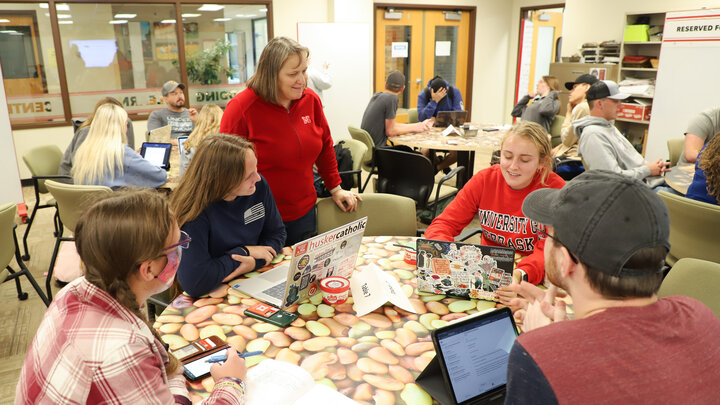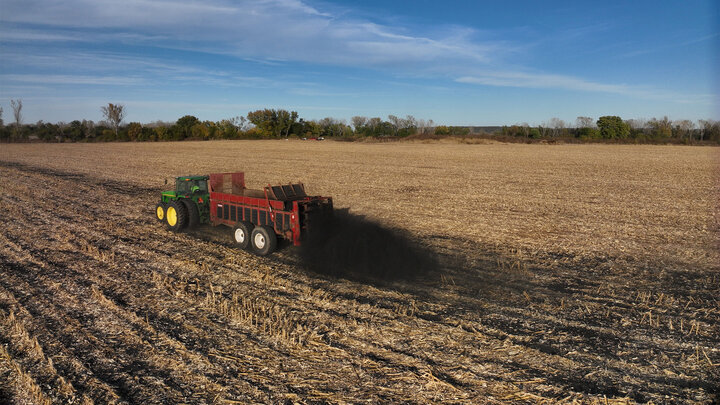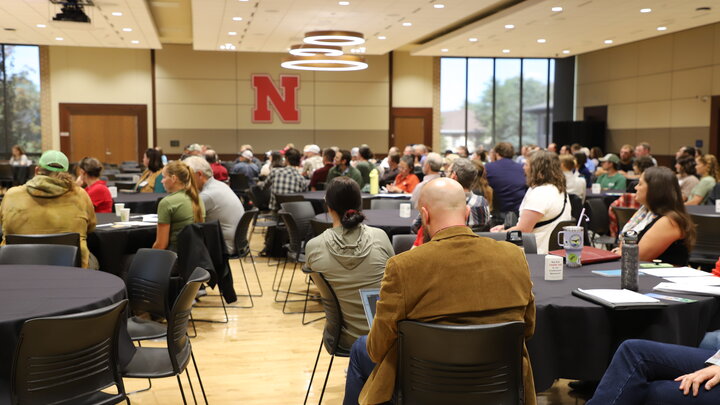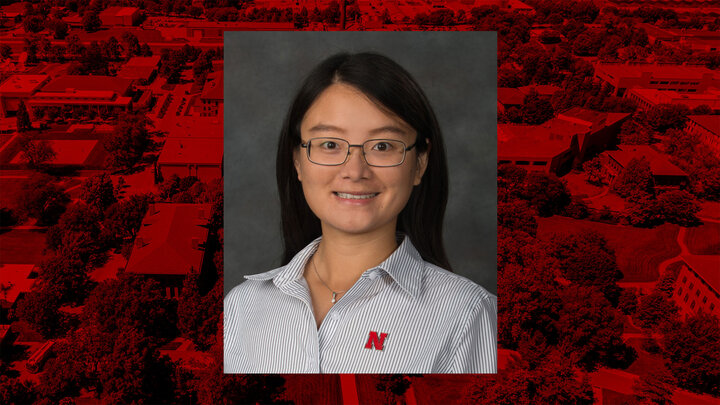New students in the Department of Agronomy and Horticulture are required to complete PLAS 95 Plant and Landscape Systems Seminar, a five-week, zero-credit-hour course. Taught by Anne Streich, professor of practice and lead instructor, and Martha Mamo, department head, this course is designed to help students discover career opportunities, improve academic success skills, identify beneficial co-curricular activities and select appropriate internships.
“Just as academic courses are essential to college and career success, nonacademic skills and connections with fellow students, faculty and potential employers is just as important to student success,” Streich said.
Initially, the department had two courses to help students learn about professional opportunities within their discipline – one for agronomy students and one for turfgrass and landscape management students. Both courses covered academic and professional goals, resumes and internships, and hosted guest speakers who focused specifically on careers within each emphasis.
In 2017, the University of Nebraska–Lincoln Academic Program Review committee recommended there be common core courses for all students in the department. In 2020, the previous career courses were merged into one 10-week course which included activities to help students succeed in college and prepare them for their future careers. Industry specific presentations were replaced with lectures, assignments and activities that would connect students to potential industry and faculty mentors in their chosen discipline and support different professional goals.
The course moved to a five-week, zero-credit-hour class in fall 2022. This allowed students to learn important topics early in the semester prior to mid-terms, priority registration and the College of Agricultural Sciences and Natural Resources Career Fair. It also helped students connect with one another, with faculty and with campus resources very early in their college career.
In the first week, students were introduced to the department, student clubs and competition teams. Joining a professional club, such as agronomy club, horticulture club or turf club, makes it easier for new students to meet other students in their discipline and to get advice on courses to take, internships to consider and part-time campus jobs.
Colleen Cameron from the Center for Academic Success and Transition spoke about time management and studying in college in week two.
Internships are key components of a student’s academic experience. They allow students to explore different areas of study, make connections with future employers and experience professional work environments. In week three, students in the course were required to either attend a 75-minute block of internship presentations given by students who completed an internship this past summer or go to the CASNR career fair. During class a panel of students who had completed an internship discussed their internship experiences and answered questions.
Academic planning was the topic for week four. Eighteen faculty and staff representing PLAS emphases and other departmental minors visited with students about how the emphasis/minor could benefit their professional goals. In addition, some of the faculty shared with the students possible undergraduate research opportunities.
Student feedback indicated that the academic planning activity was a highly valuable experience. It provided them an opportunity to meet faculty who they will be takes classes from in future years and to learn about the courses, emphasis and minors that will help them with their professional goals.
“Participation by the faculty shows the students how eager our faculty are to get to know them and help them with their professional goals,” Streich said. “They were all very willing to participate and share information about the emphases and minors that they are involved in.”
Making and developing professional connections is very important in achieving professional goals. A final course assignment was to connect with and interview an alumnus working in a position the student would like to pursue. During the final class students shared what they learned.
“Students got to know one another well through the different activities we did in class each week. I am looking forward to teaching the course again next year,” Streich said.
Streich serves as advisor to more than 200 agronomy and horticulture students. She also teaches PLAS 227 Introductory Turfgrass Management, the internship courses (PLAS 295, PLAS 395A, PLAS 395B, PLAS 395L, PLAS 395T), PLAS 391T Special Topics in Turfgrass Science and Management and co-teaches AGRI 311 Study Tours in US Agriculture with Brad Goetsch, assistant professor of practice.



